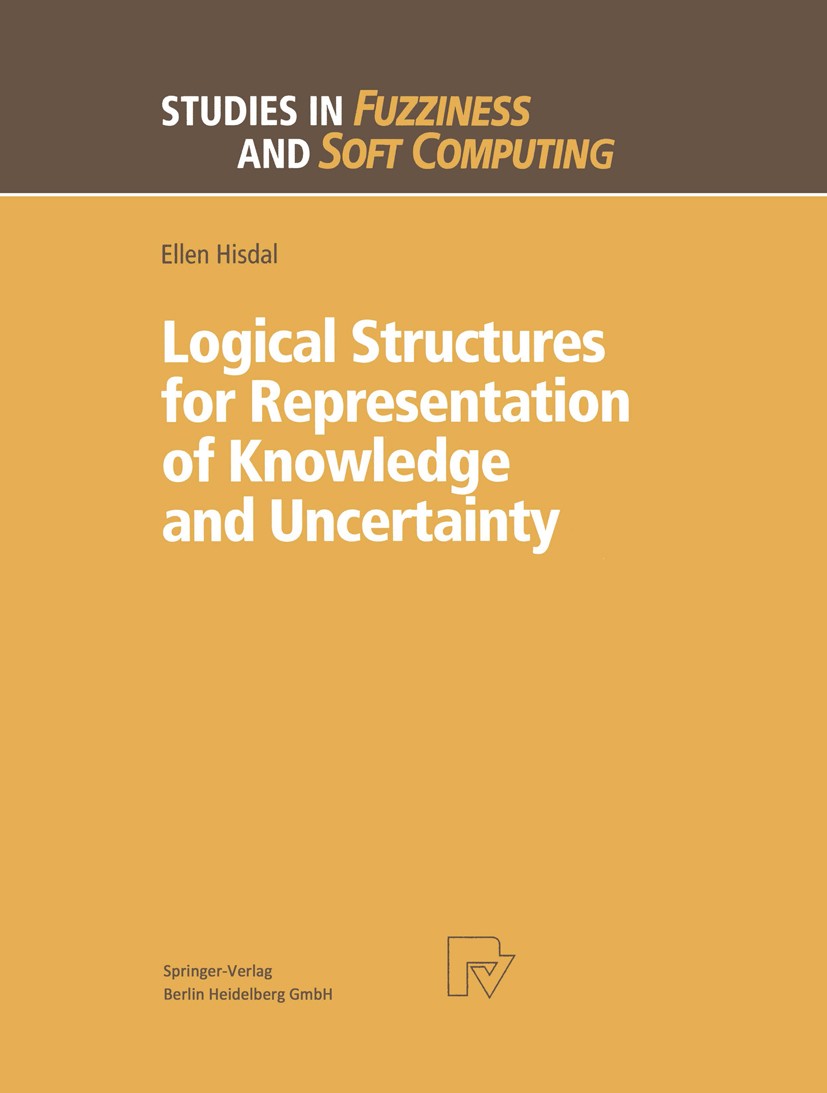| 书目名称 | Logical Structures for Representation of Knowledge and Uncertainty |
| 编辑 | Ellen Hisdal |
| 视频video | http://file.papertrans.cn/589/588158/588158.mp4 |
| 概述 | Describes a new truth table logic with built-in probabilities.Includes exercises and solutions to difficult exercises |
| 丛书名称 | Studies in Fuzziness and Soft Computing |
| 图书封面 |  |
| 描述 | It is the business of science not to create laws, but to discover them. We do not originate the constitution of our own minds, greatly as it may be in our power to modify their character. And as the laws of the human intellect do not depend upon our will, so the forms of science, of (1. 1) which they constitute the basis, are in all essential regards independent of individual choice. George Boole [10, p. llJ 1. 1 Comparison with Traditional Logic The logic of this book is a probability logic built on top of a yes-no or 2-valued logic. It is divided into two parts, part I: BP Logic, and part II: M Logic. ‘BP‘ stands for ‘Bayes Postulate‘. This postulate says that in the absence of knowl edge concerning a probability distribution over a universe or space one should assume 1 a uniform distribution. 2 The M logic of part II does not make use of Bayes postulate or of any other postulates or axioms. It relies exclusively on purely deductive reasoning following from the definition of probabilities. The M logic goes an important step further than the BP logic in that it can distinguish between certain types of information supply sentences which have the same representation in the BP logic |
| 出版日期 | Book 1998 |
| 关键词 | Unsicherheit; Wissensrepräsentation; artificial intelligence; calculus; künstliche Intelligenz; represent |
| 版次 | 1 |
| doi | https://doi.org/10.1007/978-3-7908-1887-1 |
| isbn_softcover | 978-3-7908-2458-2 |
| isbn_ebook | 978-3-7908-1887-1Series ISSN 1434-9922 Series E-ISSN 1860-0808 |
| issn_series | 1434-9922 |
| copyright | Springer-Verlag Berlin Heidelberg 1998 |
 |Archiver|手机版|小黑屋|
派博传思国际
( 京公网安备110108008328)
GMT+8, 2025-12-19 23:27
|Archiver|手机版|小黑屋|
派博传思国际
( 京公网安备110108008328)
GMT+8, 2025-12-19 23:27


